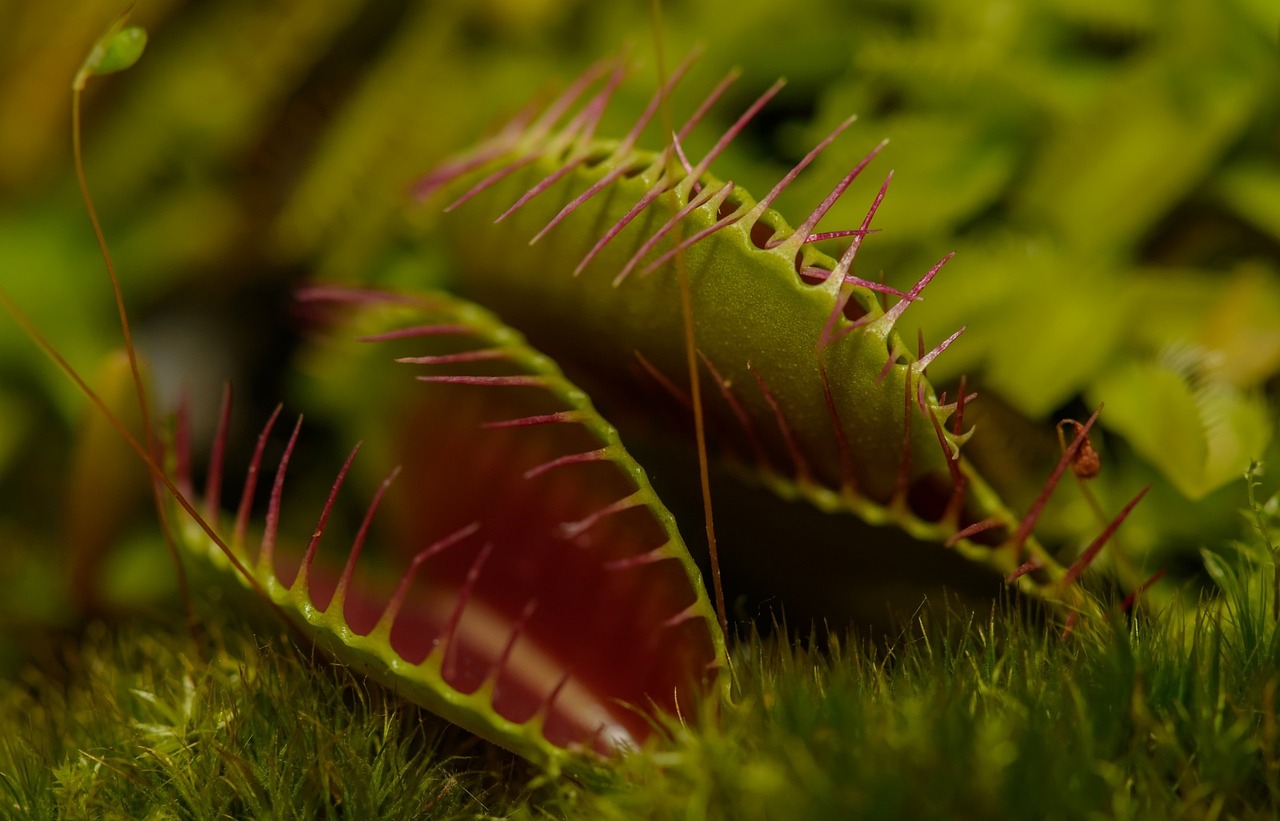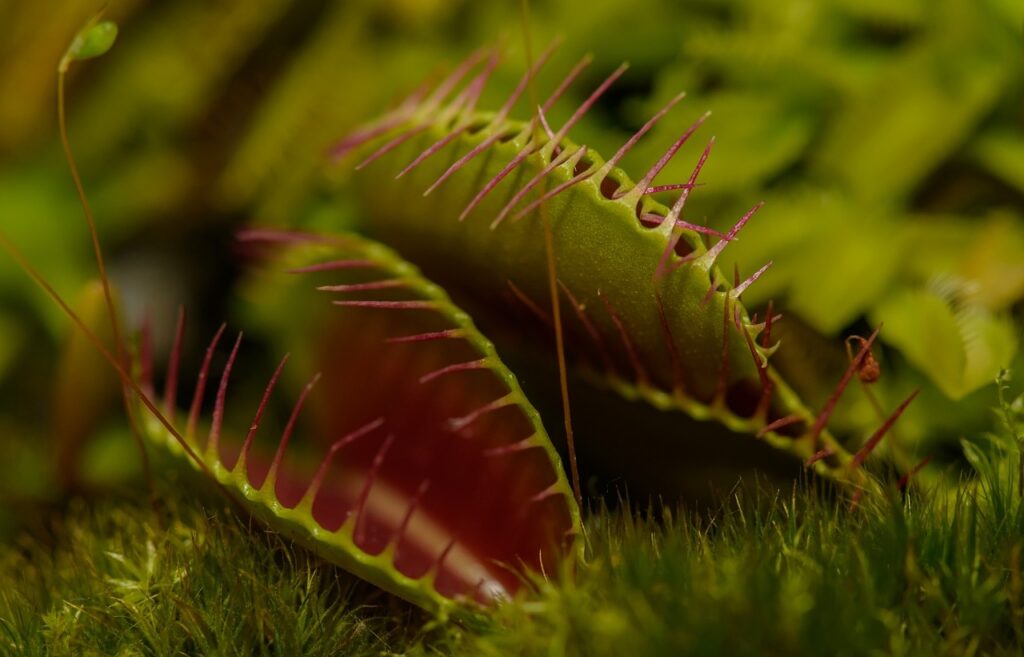

In a botanical bombshell that left the plant kingdom bewildered, a once ferocious carnivorous plant has made a shocking announcement—it has decided to adopt a vegan lifestyle. While many hailed this as a positive step towards a more plant-friendly world, the decision has sparked controversy and accusations of cannibalism.
The notorious plant, known for its insatiable appetite for insects and small critters, held a press conference in its pot, surrounded by a concerned cluster of petunias and daisies. The plant, named Audrey (after the famous botanical antagonist from “Little Shop of Horrors”), declared, “I’ve had an epiphany, my dear leafy companions. I can no longer bear the guilt of devouring innocent creatures. From now on, I shall subsist solely on sunlight and plant-based nutrients.”
While Audrey’s announcement initially garnered applause and a standing ovation from the environmentalist fern community, the excitement soon waned when accusations of cannibalism were flung at the audacious vegetation. Angry herbivorous plants, like the lettuce patch down the road, have organized protests, calling Audrey a “traitor” and demanding an apology for her carnivorous past.
A concerned sunflower spoke on behalf of the agitated vegetable community, stating, “We’ve always been taught to embrace diversity and accept everyone, but this plant is pushing it too far. Eating other plants is just wrong! It’s like… it’s like a human choosing to eat a tofu burger instead of a juicy steak! Unthinkable!”
Audrey, however, remained undeterred. She defended her decision, claiming that she had turned over a new leaf, both figuratively and literally. “I understand the backlash,” Audrey confessed, gently swaying her vines in a soothing manner. “But evolution is about adapting and learning. I’ve come to realize that there’s more to life than just devouring unsuspecting insects. I want to contribute positively to the ecosystem and show that even a carnivorous plant can change.”
Despite Audrey’s sincere intentions, the plant world remains divided. Some argue that Audrey’s decision to go vegan is merely a publicity stunt, an attempt to steal the limelight from her photosynthesizing peers. Others are willing to give her a chance, hoping that her transformation will inspire other carnivorous plants to reconsider their dietary choices.
Meanwhile, carnivorous plant experts are scratching their heads, wondering how Audrey’s radical diet shift will affect her growth and overall health. Will she wither away or bloom into an even mightier plant? Only time will tell.
As the debate rages on, the plant kingdom finds itself at a crossroads. Can carnivorous plants truly embrace veganism without being labeled as cannibals? Or will they forever remain stuck between their predatory past and their newfound love for plants? One thing is for sure—Audrey’s decision has put the “carni” back into “carnivore,” even if she’s no longer the fierce, fly-catching terror she once was.
So, as Audrey adjusts to her cruelty-free existence, the world watches and waits. Will this peculiar plant be remembered as a visionary pioneer or just another plant with an identity crisis?

